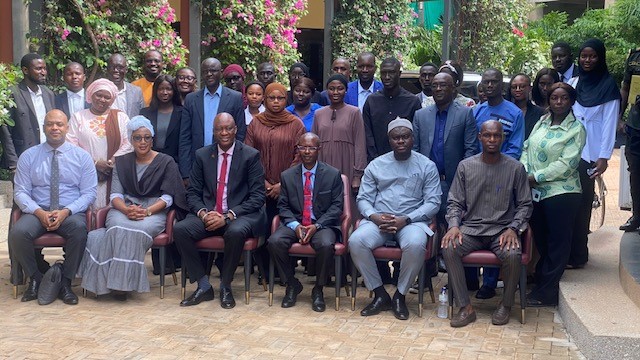By Ndey Sowe
The Gambia Revenue Authority (GRA) has organized a day-long sensitization workshop to raise awareness of the Integrated Tax Administration System (ITAS) among professional bodies, including lawyers and accountants. The event, held on 13 August 2025 at Bakadaji Hotel, was part of efforts to ensure a smooth transition to digital tax services and widespread adoption of the new system.
The Gambia government, through the Ministry of Finance and Economic Affairs, is implementing the ITAS with support from the World Bank’s Public Administration Modernization for Citizen-Centric Service Delivery Project. The initiative aims to modernize GRA’s operations by automating tax processes and introducing electronic services such as e-registration, e-filing, e-payment, and other digital platforms.
Yankuba Darboe, Commissioner General of GRA, described the sensitization as a significant step in preparing stakeholders for the changes ahead.
“For many years the GRA has been on a journey to modernize our tax processes, enhance efficiency, and foster a culture of voluntary compliance,” CG Darboe said. “As we are gathered here today, we acknowledge the pivotal role you play in the legal and fiscal landscape of our society. The practice of law, particularly in taxation, requires not only awareness of the existing legal framework but also of the instruments and technologies that underpin them.”
He stressed that ITAS represents a fundamental shift in tax administration, making it essential for both tax administrators and agents to be fully equipped to operate in the new environment.
“This ITAS system is expected to streamline tax processes, improve compliance, and foster greater transparency in tax administration,” he added.
Samba Sallah, Deputy Director for Headquarters Functions at GRA, explained that while the ITAS project began a few years ago, it faced initial challenges.
“Unfortunately, there were setbacks, but we are now back on the ground and starting the process properly,” Sallah said. He added that ITAS will reduce compliance costs for both taxpayers and their agents, among other benefits.
Deputy Commissioner General Essa Jallow emphasized the critical role of tax administration in mobilizing domestic revenues for national development. He noted that both tax authorities and taxpayers face rising operational and compliance costs, which the ITAS seeks to address.
“Today’s workshop is not just about understanding this new system; it is about embracing a new way of thinking about tax compliance and administration,” Jallow said. “This new system will prioritize transparency, efficiency, and accountability. By integrating modern technology into our tax processes, we will simplify operations, reduce errors, and provide better services to taxpayers and their advisers.”
He further noted that the reforms will not only benefit GRA and taxpayers but also empower citizens to better understand their obligations and ensure that the tax system remains fair, equitable.






















